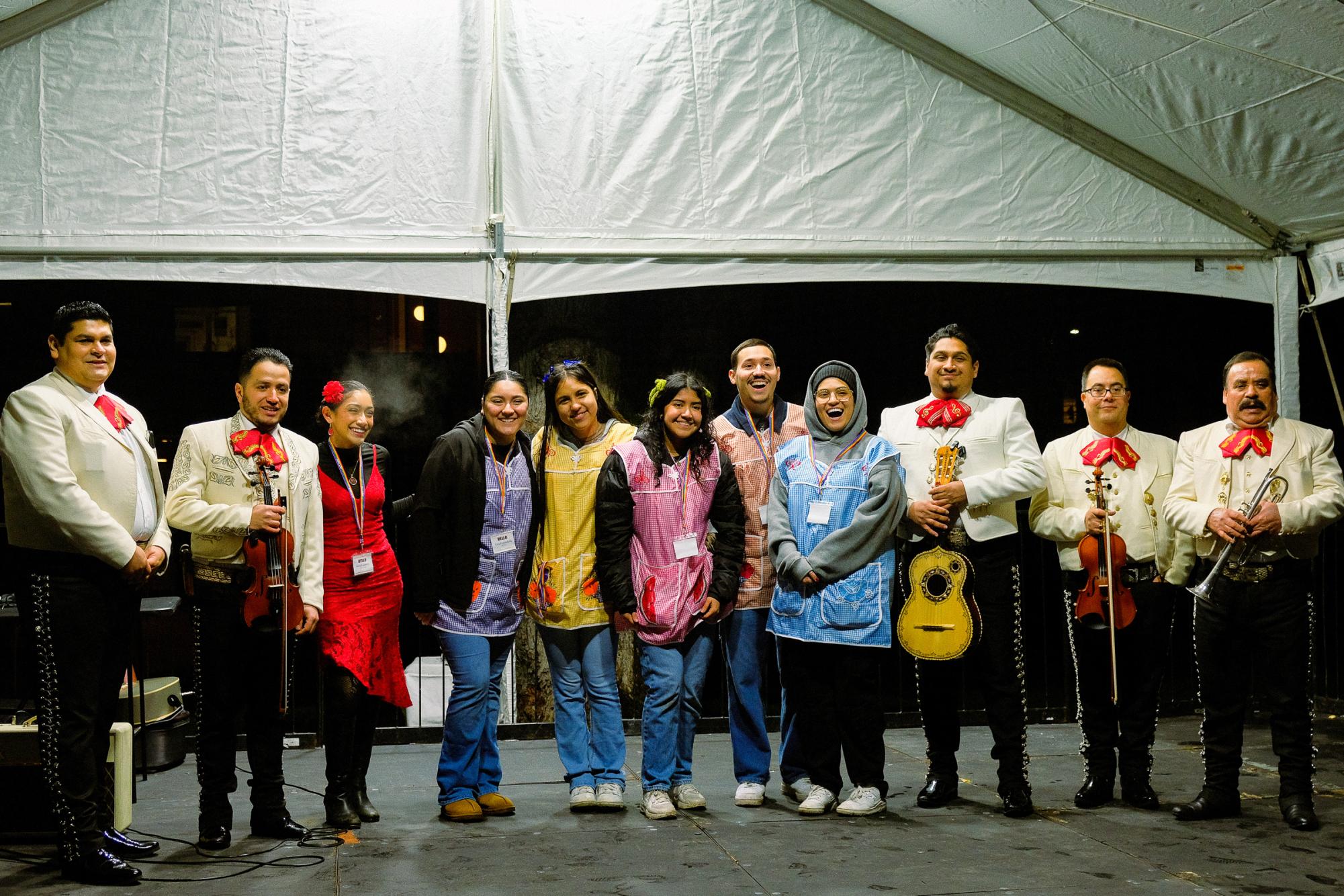
Diversity at Seattle Pacific University is as delightful as it is delicious.
On Thursday, Feb. 15 from 5 p.m. to 7 p.m., culture clubs sold homemade food and performed traditional and contemporary dances and songs for Hello Fest, an annual fair hosted by the Associated Students of Seattle Pacific University, Catalyst, Multi-Ethnic Programming and the Intercultural Club Committee.
Representing Asian, Black, Queer, Indigenous, Latine, African and Pacific Islander cultures, Hello Fest reflected the diverse stories and backgrounds of SPU’s student body.
Fourth-year clinical psychology major Chelsea Sagon represented PICCA, the Pacific Island Club of Cultural Arts. She helped make and sell Fijian cream buns and a Samoan pineapple-coconut drink called vaifala. A special ingredient tied it all together.
“Lots of love, lots of love. We had a lot of prep to do. The cream buns are really delicious but they take a lot of time, but we all worked together to make it,” Sagon said. “The purpose of PICCA is to share food, culture [and] languages, and this is just one part we show that love for culture.”
Food unifies people, but can also distinguish them. Take, for example, fried dough. Hello Fest featured mandazi, tteokbokki, fry bread with boysenberry jam, puff-puff and fried bake, all different takes on the simple trope of butter and batter.
At a university whose incoming freshman class is 54% from historically underrepresented ethnic and racial backgrounds, programs like ICC and MEP seek to represent and support students in the fullness of their identities.
Freshman apparel design merchandising majors Juan San German and Elizabeth Gaspar-Escobar both joined MEChA, the Spanish and Latine club when they arrived at SPU.
“Most people who come from the same background like Hispanic and Mexican, I guess in a way we immediately bond. I feel like there’s that importance to campus because there’s not that many of us here on campus along with other cultures,” San German said.
The same can be said of other cultural groups on campus.
“It’s really inviting and it builds a community with people who can support you throughout things and that have a background in similarity. You can learn from them and indulge in different cultures and get more exposed to the world around us,” Gaspar-Escobar said.
Clubs are a home away from home for many students. Culture clubs specifically create spaces for students to feel understood and seen. When one feels understood, one feels encouraged to understand. The bread we break together might be different, but we all share.
Like a potluck, students bring their stories to campus, with the table being set by programs like MEP and ICC. Dr. Joyce Del Rosario is the director of Multi-Ethnic Programming at SPU. Having joined SPU in the summer of 2022, she helped ICC and ASSP create Hello Fest when it first premiered during 2023’s spring quarter.
“To work towards something together is really good. Part of the work is not just Hello Festival, but creating community and solidarity amongst all the students, it’s about creating solidarity within clubs and intra-clubs, and really that builds a stronger campus overall especially considering how many students are represented within all the clubs,” Del Rosario said.
Like a tight woven basket, the threads hold stronger in different directions, not just one. But 2024’s Hello Fest says goodbye to one of those threads. Del Rosario’s position as director of MEP will be vacant after the spring quarter.
This decision is due to budget cuts and funding being pulled for MEP’s programming. While the coordination of Hello Fest will be passed on to the leadership of Catalyst and ICC for next year, the new administration under Dr. Porterfield has yet to announce plans for MEP.
Regardless, things have not unraveled. The students are still here.
“The things that you see aren’t available to you, make it available. Make it available for yourself and your peers and the generations of students of color going forward,” Del Rosario said. “A lot of times it’s not being offered to us by the larger institutions or corporations or whoever we work for or are under. But we will always have the opportunity to create for ourselves what we need.”














































































